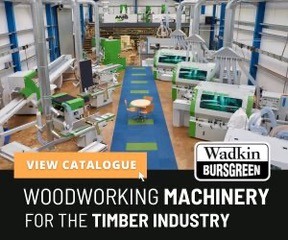Victory Leisure Homes, a leading designer and builder of quality leisure homes and lodges, has recently invested in new energy-saving dust extraction equipment from Dust Control Systems (DCS).
Victory Leisure Homes is part of the Rix Group, a fifth generation, family-owned company which was first established over 140 years ago. Victory Leisure was formed as a new company in 2009 and is already quite a success story.
After starting out in a former caravan factory in Hull with a workforce of just 35 producing around five units a week, the firm soon outgrew its original site and moved to a new purpose-built factory to the west of Hull in Gilberdyke. Today, Victory Leisure has a workforce of 120 and is turning out 15 to 20 units per week.
When the company decided to invest in a modern dust extraction system it called in DCS to discuss their needs. Peter Nevitt, managing director at Victory, explains: “We knew of DCS’s reputation in dust extraction and of their excellent energy-saving credentials; and these were important factors for us when selecting a contractor. As part of the Rix Group, we operate a company-wide philosophy aimed at saving energy and reducing our carbon footprint.”
DCS engineers devised an energy-efficient scheme which centred around an externally-sited, high-efficiency, modular filter unit, with rotary valve pressure-free discharge into an existing woodwaste transfer system which feeds waste to a high capacity container trailer.
Designed to handle a total airflow capacity of 23,000m3/hr, the system employs a 45kW, low-noise, direct drive main fanset. The filter unit is fitted with Superbag polyester filter bags which employ a patented weaving technique, in tubular format, giving the filter bag a surface which can cope with varying filter loads.
The key energy-saving feature of the system is the installation of an Ecogate® on-demand system which optimises fan speeds, thereby reducing extraction volumes. An Ecogate greenBOX12 controller, in conjunction with a variable speed drive, automatically adjusts the speed of the main extraction fan as woodworking machines come on line or shut down – resulting in power savings of over 50% versus a traditional system.
Peter Nevitt adds: “Decommissioning of the old dust plant and installation of the new equipment was completed very efficiently over our normal week-long holiday shutdown with no disruption to production. We now have an extremely energy-efficient dust extraction system, consuming only the kilowatts needed, in place of a system that ran continuously and at a constant speed for around 10 hours every day.”








